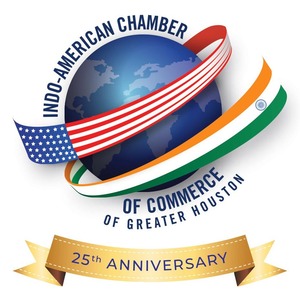Business Financing for Small & Medium Businesses
Business Financing for Small & Medium Businesses In today�s tight economy, Business funding is at a premium and keeping that in mind, IACCGH organized another exciting and informative evening for its members and their guests. With help from United Central Bank and Chase Bank, IACCGH organized a Seminar on �Access to Capital� at the Westin Galleria Hotel on March 27th. Experts from different organizations spoke on the various options available for all types of businesses. Frances Tongol from JP Morgan Chase , Paul Cheong from United Central Bank, Mr. Harry Singh from Golden Temple, Michele Weisblatt from Houston Angels Network and Craig Sellinger of Briar Capital talked about different types of financing available, eligibility for loans, terms, application fees etc. Francis Tongol talked about Conventional Business Installment Loans and Business Equipment Leasing Plans and Revolving Credit Lines which JP Morgan Chase offers for business use. Paul Cheong spoke about Small Business Administration Loans, which are available usually on more favorable terms compared to loans available through conventional Banks. United Central Bank works closely with the Small Business Administration to offer funding and counseling to Independently owned and operated small businesses not dominant in their respective fields. Proceeds of SBA Loans can be used primarily for the main purpose of running the business, including working capital as well as purchase of machinery and fixtures etc. There are limitations as to what kind of businesses would be eligible for SBA loans. Harry Singh is the Commissioner for Small Business in Texas. He focused on Federal Financing for Export purposes, to create jobs in America. Due to increased liberalization of foreign markets, new opportunities have opened up for businesses to expand their client bases and to diversify their revenue. Only 12% of all US Companies are involved in Export, compared to 60% from Japan, Germany & other countries. US Companies who export have large financial and human resources. Smaller companies need financial help to enter the global Export/Import market. Recognizing that financial markets are not responding to the needs of the Export community, Federal and State Agencies such as Export/Import Bank of USA were created to meet their financing needs. These programs allow Banks to lend more funds against riskier assets such as inventory and foreign receivables. Using proceeds of their sales collateral, domestic companies get the cash they need to purchase imports and begin production. Continued support from State and Federal agencies is the key to the ongoing viability and expansion of these valuable programs. The next speaker was Craig Sellinger, Operations Manager for Briar Capital, a commercial lender specializing in Asset Based Lending, Factoring and Real Estate transactions. Craig talked about two types of non-traditional financing- Asset Based Lending and Factoring. Non-Traditional financing is based on the value of the collateral and not on the success or financial condition of the client. Payment terms also vary with non-traditional financing. Advantage of Asset based lending allows a Company with limited net worth and not necessarily be profitable, to borrow money. Restrictions are very stringent, allowing smaller businesses to tap into available resources. The disadvantage with Asset Based Lending is the reporting requirement on collateral, at least on a weekly basis. The cost of financing through non-traditional methods is higher than traditional financing, since the lender is taking more risks. The other form of non-traditional lending- factoring, is where a company buys receivables at a discount. Factoring could be �Recourse� or �Non-Recourse� type. The factors help manage the borrowers� receivables. Factoring is more expensive than traditional or Asset Based financing. Michele Weisblatt, Managing Director of the Houston Angel Network was the last speaker. She explained that an �Angel� is a wealthy individual with net worth of at least $1,000,000 or has invested at least $200,000 the past two years and intends to continue with it, who will invest money in a venture. Companies that look for Angel investors are early stage companies with very little operating history. The screening process is shorter than with most other financing options. The �Angels� follow similar Industry standards as other funding institutions, mainly the ability to pay back the loans. They look for companies with a strong management team and have large market opportunities. The guests who were present were very impressed with what they heard and had a lot of questions for the speakers. Businesses who are looking for funding, are encouraged to contact these different organizations to see what facilities are available to them. You can learn more about the Chamber and its activities at www.iaccgh.com or call 713-624-7131. For more information on the IACCGH please visit: www.iaccgh.com You can learn more about the Chamber and its activities at www.iaccgh.com or call 713-624-7131
